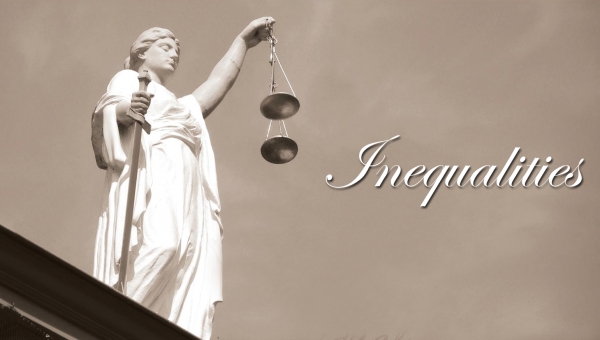
As Australians head to the polls for another federal election, there are global anxieties about the state of democracy [The Global State of Democracy 2023; Dangerous cracks in US democracy pillars]. Even in Australia there seems to have been a decline in satisfaction in democracy from high levels in the early 2000s. A 2023 study found that almost all Australians value democracy and most are satisfied with Australian democracy, but nearly half think that its future is at risk and that democratic institutions and processes are corrupted.
Add a comment
A story of political corruption in ancient Israel can help the church speak out.
The Shadow of Blooming Grove
Francis Russell wrote a book about Warren G. Harding, titled The Shadow of Blooming Grove. It’s a biography of a man considered one of our worst presidents, who came from Blooming Grove, Ohio.
Add a comment
Cameron Fraser’s book, Evangelicals and Abortion, is just remarkable. It not only covers the most crucial discussions through the centuries but also gives a compelling overview of many aspects of other areas of Christian theology that relate meaningfully to abortion.
Add a comment
On May 3, 2023, Manipur State in North Eastern India, witnessed the beginning of a spate of violence and destruction including murder, arson, rape, and indiscriminate brutality. The perpetrators were the dominant community, the Meiteis, supported by the State government and the police; the victims were the Kukis, a tribal group that lives in the hills of the state.
Add a comment
For many people the mere mention of Sri Lanka, formerly known as Ceylon, brings with it a rather bleak picture of a situation gone out of control. Many will dismiss Sri Lanka as a debt ridden, badly governed, poverty stricken country controlled by one family who, until recently, held key positions in government and wielded their power for their own gain. This is all true, and there is little that can be done when a majority representation in government has its way.
Add a comment
Christians worldwide may be hearing confusing news about abortion in the United States after the US Supreme Court decision on June 24, 2022, Dobbs v. Jackson Women’s Health.[1] As a civil rights attorney and previous adoption lawyer, I can summarize this consequential ruling. Then I will suggest some ways forward for Christians, both in the U.S. and elsewhere.
Add a comment
Recently, the Supreme Court of the United States ruled that the American law recognizing the legality of abortion should be overturned. By that ruling, the law known as “Roe v. Wade” was rendered null and void. There has been much discussion of this matter and some of that discussion has suggested that evangelical Christians tend to demonstrate greater concern for the human fetus than for human beings after they are born.
Add a comment
The Christian Reformed Church of North America (CRC) and my Evangelical Presbyterian Church (EPC) are fraternal, ecumenical partners. One of the purposes of the World Reformed Fellowship is the facilitation of dialogue and conversation across denominational boundaries. It is in that spirit that I share my pastoral appreciations and critiques of the CRC’s report on human sexuality.
Add a comment
I certainly do not intend to exhaust the issue of inequality in this last article of the series on statism and idolatry. Yet, since I chose this as an illustration of the broader development, I will attempt to provide a very short sketch on how a specifically theological conception of the State in relation to society, in a discussion how to solve social and economic inequalities, would involve a combination of different areas of responsibilities by different spheres in the social order.
Add a comment
In the first part of this series I set forth my contention that, “To invest our redemptive yearnings in anything other than God’s action in Christ and through His body, the Church, to expect the rectification of “structural sin” or any kind of resolution for the identity-group-defined injustices through political action, is both naïve and dangerous: it is idolatrous.” Now, as promised I want to outline an alternative perspective. First, however, let me give you some context.
Add a comment
“Dr. Schaeffer, what is your biggest concern for the future of the church in America?” Robert Charles Sproul (1939-2017) asked the great Christian thinker of the twentieth century as they shared a cab in the early nineteen-eighties. Francis Andrew Schaeffer (1912-1984), already in his twilight years, did not hesitate: “Statism.” Sproul explains:
Add a comment
Things have changed. The difference between the political parties has grown and the heat seems to have been turned up in political debate. The Australian Electoral Study found that in 1996 almost 40% of Australian politicians described themselves as “moderate” – that is, centre-left Liberal and centre-right Labor politicians. By 2016 only 10% described themselves that way. Voters have followed the same trend — in 1993, 54% considered themselves to be centrist. By 2016 only 42% did. This polarisation has been very obvious in the US. The same trends have impacted Australia.
Add a comment
